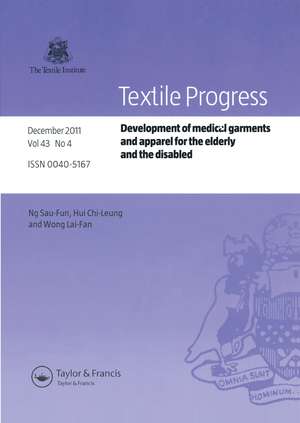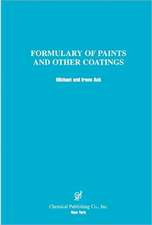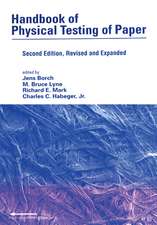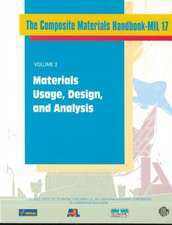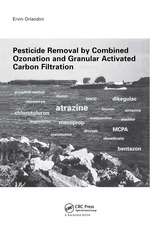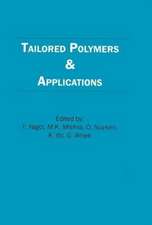Development of Medical Garments and Apparel for the Elderly and the Disabled: Textile Progress
Autor Ng Sau-Fun, Hui Chi-Leung, Wong Lai-Fanen Limba Engleză Paperback – 7 mar 2012
| Toate formatele și edițiile | Preț | Express |
|---|---|---|
| Paperback (1) | 141.77 lei 6-8 săpt. | |
| CRC Press – 7 mar 2012 | 141.77 lei 6-8 săpt. | |
| Hardback (1) | 1014.74 lei 6-8 săpt. | |
| CRC Press – 28 iun 2018 | 1014.74 lei 6-8 săpt. |
Preț: 141.77 lei
Preț vechi: 174.46 lei
-19% Nou
Puncte Express: 213
Preț estimativ în valută:
27.13€ • 28.22$ • 22.40£
27.13€ • 28.22$ • 22.40£
Carte tipărită la comandă
Livrare economică 14-28 aprilie
Preluare comenzi: 021 569.72.76
Specificații
ISBN-13: 9781466514355
ISBN-10: 1466514353
Pagini: 58
Dimensiuni: 178 x 254 mm
Greutate: 0.11 kg
Ediția:New.
Editura: CRC Press
Colecția CRC Press
Seria Textile Progress
ISBN-10: 1466514353
Pagini: 58
Dimensiuni: 178 x 254 mm
Greutate: 0.11 kg
Ediția:New.
Editura: CRC Press
Colecția CRC Press
Seria Textile Progress
Public țintă
Professional Practice & DevelopmentCuprins
I. Introduction -- I. Cla.ssitIcation of medical garments -- 1.1.1. Protective function domain -- 1.1.2. Treatment function domain -- 1.1.3. caring function domain -- 1.2. Development of medical garments -- 1.2.1. Historical development of medical garments -- l.2.2. Trends of medical garments -- 1.2.3. Future scope of medical gannents -- 2. Review of medical garments for protective function -- 2.1. Medical drapes and gowns -- 2. I. 1. Textile materials for medical drapes and gowns -- 2.1.2. Design considerations for medical gowns -- 2.2. Hip protectors (HP) -- 2.2.1. Textiles used for HP -- 2.2.2. Design considerations for improvement on the compliance -- 3. Review of medical garments for treatment function -- 3.1. Pressure garments (PGs) -- 3.1. I. Textiles used for PG -- 3.1.2. Considerations on the design of PGs -- 3.2. Compression stockings (CSs) -- 3.2.1. Textiles for C’Ss -- 3.2.2. Considerations on the application of CSs -- 3.3. Wet dressings -- 3.3.1. Functions of wet dressings -- 3.3.2. Textiles used for wet dressings -- 3.3.3. Limitations of wet dressings -- 4. Review of apparel products for caring function -- 4.1. Superabsorbent materials (SAMs) used in disposable healthcare products -- 4.2. Wound dressings -- 4.3. Diapers for incontinence problems -- 5. Review of intelligent medical garments -- 5.1. Application of conductive textile material into the smart garment -- 5.2. Examples of intelligent medical garments -- 5.2.1. Smart garments for vital signs and motion monitoring -- 5.2.2. Smart diapers -- 6.Casestudiesinthedevelopmentofapparelfortheelderlyandthedisabled262 -- 6.1. Stoma bag Underplants -- 6.. 11 litisting problems faced by the users carrying stoma bag -- 6.12. Techniques adopted for the development of stoma bag underpants -- 62. Urine bag pants -- 62. 1. Problems faced by people currying a urine bag -- &2r2. Techniques adopted for the development of urine bag pants -- 5.3. Pan Is for chair-bound people -- &3. I. Problems faced by chair-bound people -- 612. Techniques applied for the development of pants furchair-bound people -- 5.4. Sun block protective garments for patierns with xeroderrna pignientosum -- 6.4.1. Problems faced by patients with XP -- 6.4.2. Tech niques applied for the dn’eloprnen of a sunbiock protective garment for patients with XI’ 27 -- 7. Future prospects of developing apparel for the elderly and The disabled -- 8.Conclusion274.
Descriere
Although the main theme of this book is products for the elderly and the disabled, it also contains major sections on medical garments, which include personal protective equipment (PPE), hip protectors (HP), pressure garments (PG), compression stockings (CS), wet dressings, products for wound dressing, adult incontinence products, sanitary napkins, disposable diapers, vital signs monitoring garments, motion aware clothing, wearable sensors and smart diapers and so on. The development of apparel for the elderly and the disabled is a challenge for the healthcare and clothing industries. The developed apparel products are not only based on various design, fashion and comfort concepts but also considered in terms of particular medical problems, restorative care functions, and appropriate solutions for healthcare purposes.
